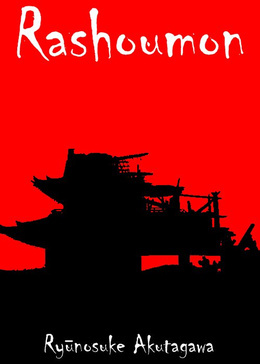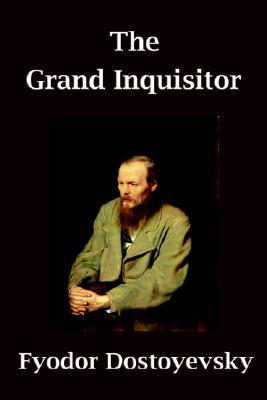23/01/16
Concatenated thoughts #1 - #2
 There was a man sitting by the ruins of a gate known as Rashōmon, listening to the sound of the rain
There was a man sitting by the ruins of a gate known as Rashōmon, listening to the sound of the rain
that was falling over the city of Kyoto. That man had been dismissed by his master and had nowhere to go. So there he was, looking at that gloomy landscape. His thoughts were wandering inside his mind like withering leaves on a windy day. Thinking about a tomorrow when there was nothing to hope for. As the pouring rain started to increase and the day became colder with every passing minute, the man found himself with only two options concerning his inevitable future. He revolved those options in his mind as a set of morals started to make pressure over them. The world had nothing more to give to him. Fate had nothing more to give to him. It was one of those times when responsibility is too much to bear; when freedom interweaves with absurdity and we wish for some Providence to give us a hand. When being alone is the only truth that can be obtained.
Two options. Nothing more. To die of hunger and become another one of those corpses that were taken to the gate. Or to dedicate his life to crime, and thus, keep himself alive.
For although the servant acknowledged that he had to do whatever he could to get by, he didn't have the courage to bring the sentence to its foregone conclusion: "I am bound to become a thief."
Amid such internal struggles, the mind begins to fabricate reasons. Justifications to lighten the weight of any decision that might jeopardize everything that is righteous, honorable, expected. But it was not the rationalization of such matter that helped him make his decision. It was a fire. Her dim firelight, on top of the gate, on that rainy night, barely illuminating the corpses no one would ever remember.
At that moment, if someone again raised the question that the servant had been thinking about under the gate—whether he would starve to death or become a criminal—the servant would almost certainly have chosen starvation, without an ounce of regret. Like the torch the old woman had jammed between the floorboards, this was how ardently the man's heart burned against all that was evil.
A dark, stormy weather that seems to evoke the collapse of an entire society. A flawless use of symbolism to illustrate the vanishing line between a man and a beast.
A savage place where once rational people now just do what they have to do. And yet, I wonder how rational can you be when your life's at stake.
You might have heard of a film named after this short story. A 1950 movie directed by Akira Kurosawa, starring Toshiro Mifune—an actor I love since the very first time I saw him impressing everyone in Seven Samurai. I decided to only watch this movie after reading two short stories. First, Rashōmon that provided the setting. The plot and the characters were taken from another short story named...
Rating: ★★★★★
23/01/16
Concatenated thoughts #1 - #2
...In a Grove; another fine inspiration for Kurosawa's film. This story includes four testimonies, one confession, one repentance and a final account concerning the murder of Kanazawa no Takehiro, a 26 year-old samurai, and the rape of his wife, a 19 year-old woman named Masago, by a notorious brigand known as Tajōmaru. Those might be the most accurate details of the entire story since there are many contradictions among all the people involved in this case, making it impossible for the reader to actually know the truth, even when there might not be such a thing... rather than realities naturally connected with subjectivity. The witnesses' inconsistencies might have not been on purpose. Some sort of explanation can be found in the obvious fact that our memory is not completely reliable. Therefore, inconsequential details or relevant events might get lost in a sea of information, especially to those who are not used to such things that eventually improve one's observation skills. However, I do not believe the same can be said about the other three characters: the samurai (in fact, his spirit), his wife and the criminal, for they all have good reasons to invent, embellish or distort their versions to save their lives and honor.

A lie works as a mechanism of self-preservation for most people.
Am I the only one who kills people? You, you don't use your swords. You kill people with your power, with your money. Sometimes you kill them on the pretext of working for their good... It's hard to say who is a greater sinner, you or me.
The plot revolves around some interesting themes that include the inability to know an absolute truth since everything seems to be contaminated by our impressions; self-interest, beauty and lust, dishonor and the atrocities a person is willing to do to remedy that situation, the ephemeral essence of our existence and the heinous rationalization behind the act of taking somebody else's life.
'Truly human life is as evanescent as the morning dew or a flash of lightning', stated the traveling Buddhist priest in his testimony.
Since the film gave me the absurd idea of merging these reviews, it is only fair to say that Kurosawa's approach differs a bit from Akutagawa's story, where ambiguity controls every aspect of it. But the movie is something you do not want to miss due to stunning performances, sublime music and the symbolism they have employed that is simply mesmerizing, ranging from particular elements to a dichotomy conveyed through an exquisite use of light. Besides, you haven't cinematographically (?) lived until you see Mifune fluctuating between serious dialogues and sudden outbursts of laughter with his unique voice.
Anyway, as the book reaches its peak, everything seems rather superfluous. Even words. There was an implied communication between some of the characters in which many things were said through the eyes. A poetic interpretation would not apply here, since I believe they did it to find whatever they were resolved to find. Another excuse to justify their actions. Nonetheless, in the end, I suppose they were all guilty as they were victims.
The story ends with the account of the murdered samurai as told through a medium. It is the part I loved the most since it allowed me to take a glimpse at Akutagawa's beautiful and poignant writing, something that could not exist in the previous attempt to describe cold, hard facts. A desire for truth. An absolute truth that might never be able to avoid the contact with our personal experiences, our opinions, our interests. Our ego.









